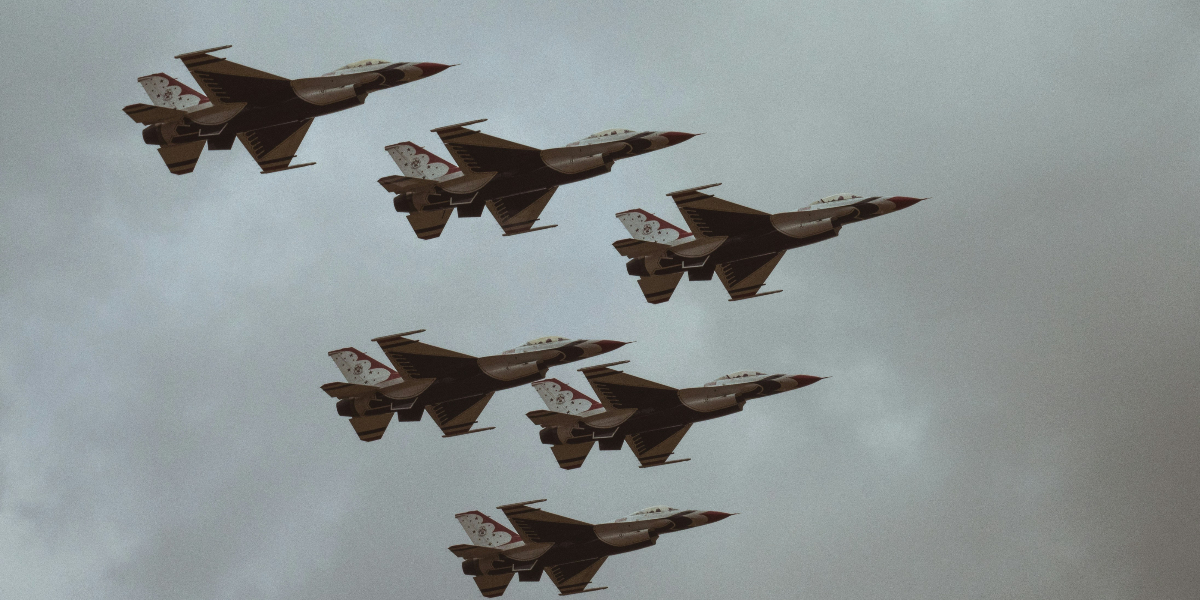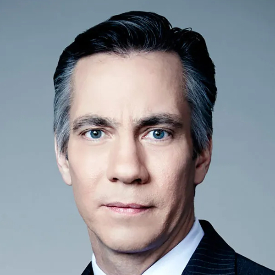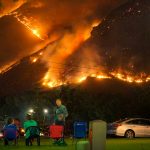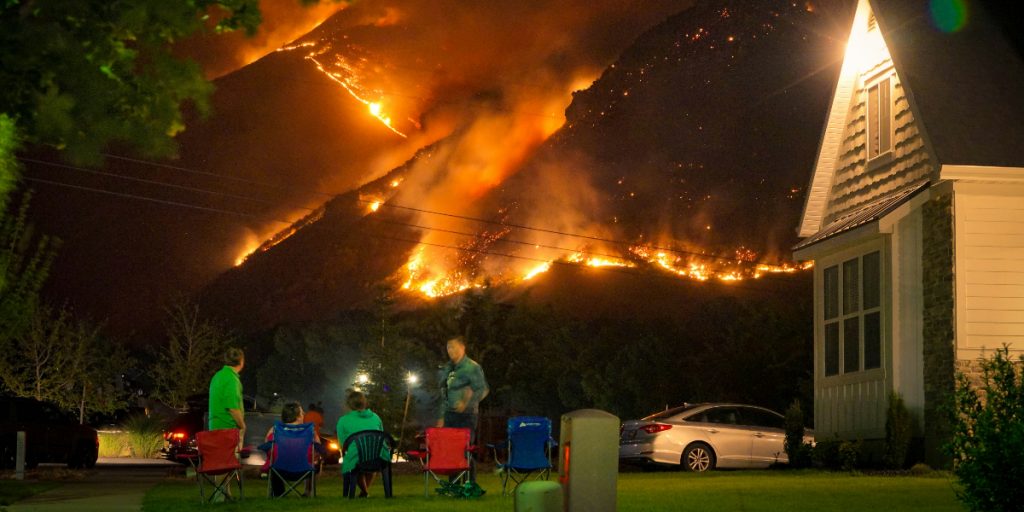Jim Sciutto is a news anchor who has been the Chief National Security Correspondent for CNN for over ten years. He has covered the deteriorating relationship between Russia and the West for years and was in Ukraine in February of 2022 when Russia invaded. One of his other books, The Shadow War, is about how Russia and China were already fighting a war against the U.S. and its allies before the eruption of open conflict. Sciutto was formerly a U.S. government official working as Chief of Staff to Ambassador Gary Locke at the U.S. Embassy in Beijing.
Below, Jim shares five key insights from his new book, The Return of Great Powers: Russia, China, and the Next World War. Listen to the audio version—read by Jim himself—in the Next Big Idea App.
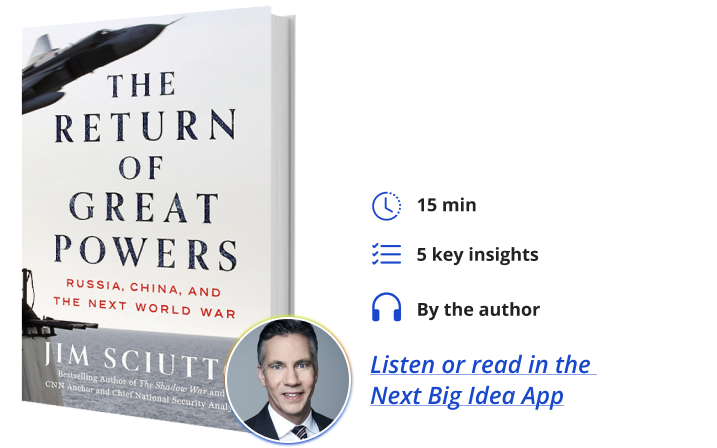
1. The Ukraine invasion was a 1939 moment.
As I walked the streets of Ukraine during those first days and weeks of the war, I found myself constantly seeing images that seemed borrowed from another time, back to the middle of the last century: people running into bomb shelters, families packing their belongings into suitcases and boarding trains heading west, soldiers piling sandbags in city streets.
With Russia’s full-scale invasion of Ukraine in 2022, Putin calculated he could absorb Europe’s largest nation by force (an idea its people explicitly and repeatedly rejected) and that the West would allow him to. He was resurrecting 1939 rules in the 21st century; a model he hoped to apply not just in Ukraine, but to rebuild the old USSR.
Memories are short. And while Europe and the world had experienced what happens when they believe they can accommodate an expansionist leader, today we are hearing many of the same excuses and rationalizations to make a deal with Putin because “Ukraine is not our fight.” From Ukraine, across Europe, and all the way to Asia, I’ve heard differently. That allowing Ukraine to fall would tempt, not prevent, further wars as Russia and China seek to redraw borders by the force of arms. Like 1939, this is a test for the US and the world.
2. Churchill was right about the crocodile.
I’ve met Estonian Prime Minister Kaja Kallas numerous times. She is an ardent student of history. She constantly quotes from books she’s read on the history of the Second World War, the Soviet Union, Ukraine, and more. She looks to these histories for lessons from the past that apply today.
As part of her history lessons, she is fond of quoting Churchill. In particular, what he famously said of Hitler: An appeaser is one who feeds a crocodile hoping it will eat him last. And we’ve seen this rule play out with Putin. From Georgia in 2008 to Ukraine in 2014 and again in 2022, as well as other targets in Moldova and Montenegro and beyond, Putin takes what he can get and reads accommodation as an invitation for the next act of aggression.
“An appeaser is one who feeds a crocodile hoping it will eat him last.”
Those who seek to accommodate Putin end up as the next meal. Ceding him Ukraine will not be the last target Moscow (or Beijing) will attempt to absorb. As we remember 1939, we need to remember the failures of leadership back then among appeasers in Europe and the U.S. There is nothing wrong with preferring peace to war. The danger is that tyrants such as Putin may be impossible to appease.
3. Their security is our security.
I moved to Beijing in 2011 with my family when I took the job of Chief of Staff to the U.S. Ambassador. It was an adventure. We traveled the country, made many Chinese friends, and friends from around the world. Beijing was an international city. Ten years later, the vast majority of our foreign friends have left the country—as have many mainland Chinese. It’s not just a general fear of less friendly relations between China and the U.S., but also the very specific fear that they could find themselves personally in the middle of it.
There’s a long list of foreigners who’ve been harassed or even put under house arrest for, say, getting on the wrong side of a business deal. The environment for journalists is more hostile and many State Department employees won’t take their families to Beijing. The independence of Ukraine and other eastern European states, as well as Taiwan, may seem like distant problems, but the rules that keep them safe and independent are the same rules that allow us to live, travel, communicate, do business, and profit from all those contacts and connections around the world.
If China and Russia and their close environs become more hostile territory—and if Russia and China can not only carve off parts of the world but also violate laws and norms against harassment, extrajudicial imprisonment or worse, theft of secrets, and more—our world becomes a dog-eat-dog, Hobbesian landscape. It’s even more pointed as both countries violate or avoid treaties, including nuclear and space treaties, intended to keep the great powers from going to war. This standoff very much affects our own freedom and well-being, at home and abroad.
4. Americans have a choice.
Ambassador John Bolton, who was President Trump’s National Security Advisor, told me a story about Trump and Taiwan. Trump likened Taiwan to the tip of a Sharpie pen, and China as the Resolute Desk that stands in the Oval Office. Bolton says this comment is dismissive of Taiwan as an allied democracy, and the importance of defense commitments to such players.
Whatever your politics, the 2024 U.S. election poses a clear choice to American voters about the role of the U.S. in the world. Trump favors accommodation with Russia and China and a retreat from U.S. mutual defense commitments to Europe, South Korea, and Japan. Biden supports them. The choice is between an America accommodating the world’s rising authoritarians and abandoning its allies, and an America leading the stand against them.
“The 2024 U.S. election poses a clear choice to American voters about the role of the U.S. in the world.”
There are risks with both approaches. As in 1939, accommodation tempts further land grabs and more wars. Deterrence, while also carrying the risk of escalation, raises the costs of Russia and China breaking yet more borders, and doing more to tear down an international system which, albeit flawed, has helped keep relative peace among the great powers for 80 years. The election offers a clear, binary choice between the two approaches.
5. There are still heroes.
In Ukraine, Taiwan, the Middle East, and beyond, I encountered brave men and women who are risking everything to defend their countries and counter authoritarians’ worst aggression. In Ukraine, I met young people of every background and education level and career, lining up to join the military to defend their country. I’ll remember the bright faced young men wearing hockey knee pads as they showed up to volunteer, the 80-year-old man who said he was trained as a sniper in the old Soviet army, and American veterans joining up to fight as well.
On the other side of the world, inspired by Ukraine, and forever watching the Ukraine’s defense and the world’s response, I met Taiwanese soldiers preparing to defend their island against a much larger adversary. I also met diplomats the world over, looking for ways to avoid the worst outcomes among the great powers—including when, in late 2022, U.S. officials feared Russia was close to ordering a nuclear strike on Ukraine. Their commitment and courage are something we can all learn from and be inspired by.
To listen to the audio version read by author Jim Sciutto, download the Next Big Idea App today:












